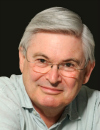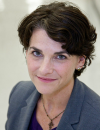08:00 | Registration |
|
Session 1 |
| Session Chair: John Spencer, Professor, University of Sussex, United Kingdom |
| |
09:00 | Innovating In Drug Discovery And Development For Neglected Diseases
Robert Don, Discovery & Preclinical Director, Drugs for Neglected Diseases, Switzerland
|
09:30 |  | Keynote Presentation Drugging the Cancer Genome and the Cancer State: Progress and Challenges
Paul Workman, Chief Executive and President, Institute of Cancer Research, London, United Kingdom
|
|
10:15 | Preclinical Optimization Of Type 2 Serine Protease Inhibitors For The Treatment Of Influenza - An Academic Drug Discovery Example
Eric Marsault, Professor, University of Sherbrooke, Canada
Type II transmembrane Serine Proteases are emerging targets for host-based treatment of influenza. Serine trap inhibitors provide efficacious inhibition in vitro and in vivo
Chemotype, mechanism of action and target confirm this is a promising host-based approach for the treatment of influenza.
|
10:45 | Coffee & Networking in Exhibition Hall |
11:15 | Industry Academic Relationships in a New Era of Drug Discovery
Malcolm Skingle, Director, Academic Liaison, GlaxoSmithKline, United States of America
Pharma and biotech are increasingly looking to universities for new ideas and technology to underpin their internal research efforts. This increase in activity had led to competition between the companies for academic inputs and a plethora of innovative models have been developed. |
11:45 | New Chemical Probes to Explore Novel Approaches to Treat Alzheimer’s Disease and Cancer
Paul Fish, Head of Chemistry, Alzheimers Research UK, UCL Drug Discovery Institute, United Kingdom
This presentation will introduce the newly created Alzheimer’s Research UK Drug Discovery Institutes and then illustrate how new inhibitors of the bromodomain of the BRPF family are being used to explore the fundamental biology and possible disease association of these proteins. |
12:15 | Using Fragments To Activate, Inhibit And Probe
Roderick Hubbard, Professor/Senior Fellow, University of York, United Kingdom
I will demonstrate how fragment based discovery methods can identify chemical tools to activate enzyme activity, to identify sites for inhibiting biological processes and to probe the surface of proteins. |
12:45 | Lightning Talks |
12:55 | Lunch & Networking in Exhibition Hall |
13:00 | Poster Viewing Session |
14:15 |  Introducing the Medicines Discovery Catapult Introducing the Medicines Discovery Catapult
Chris Molloy, CEO, Medicines Discovery Catapult
CEO Chris Molloy explains how the Medicines Discovery Catapult will support fast-to-patient drug discovery in the UK and invites discussion with the audience in this interactive session.
|
14:45 |  | Keynote Presentation Targeting Cancer Cells With Defective Tumour Suppressor p53
Sir Alan Fersht, Professor, MRC Laboratory of Molecular Biology, United Kingdom
The tumour suppressor p53 is inactivated by mutation in 70% or so types of cancers and is a target for reactivation by drugs. I will discuss reactivation of individual mutants by specifically targeted small molecules and more generic approaches for targetting a wide range of oncogenic mutants.
|
|
15:30 | Dual Aromatase-Steroid Sulfatase Inhibitors for Translational Oncology
Barry Potter, Professor, University Of Oxford, United Kingdom
We have pioneered steroid sulfatase inhibition in the endocrine therapy of breast cancer. Clinical trials of Irosustat validate this approach and new data show efficacy in early breast cancer and that aromatase inhibitor combination adds clinical benefit. Single molecule dual aromatase-sulfatase inhibitors should facilitate multi-targeted intervention and address acquired resistance mechanisms. |
16:00 | Coffee & Networking in Exhibition Hall |
16:30 | Open for Collaboration – An Academic Platform for Drug Discovery & Development at SciLifeLab
Per Arvidsson, Director, Karolinska Institutet, Sweden
SciLifeLab DDD is a newly established national Swedish infrastructure for academic drug discovery. I will describe the build-up, operation, and international collaboration of the platform, with the ambition to share learnings and best practice with academic drug discovery centers globally. |
17:00 | Inhibition Of An E2/E3 Protein-Protein Interaction As A Novel Strategy To Counteract Autoimmune Diseases
Kamyar Hadian, Group Leader, Helmholtz Zentrum München, Germany
This presentation will give insights into the discovery of a novel E2/E3 protein-protein interaction small molecule inhibitor that we were able to validate and characterize in a variety of biochemical as well as cell-based assays including primary cell models. More importantly, we can show that this first-in-class inhibitor is highly effective in a pre-clinical autoimmune mouse model for Rheumatoid Arthritis. |
17:30 | How Best to Discover Novel Bioactive Small Molecules?
Adam Nelson, Professor, Leeds University, United Kingdom
Synthetic approaches can drive the discovery of novel bioactive small molecules within controlled property space. The talk will culminate with a description of activity-directed synthesis in which bioactive small molecules emerge in parallel with an associated synthetic route. |
18:00 | Drinks Reception in Exhibition Hall |
20:00 | Conference Dinner in Hinxton Hall |
22:00 | End of Day 1 |




